News
Delivering Care and Compassion Abroad
August 9, 2023
Pictured: NYITCOM students and faculty in Osiem (Ghana), where local hosts accompanied the group to shops within the community.
This summer, 24 students from the College of Osteopathic Medicine (NYITCOM) embarked on service-learning trips that showed them medical school is more than lectures, laboratories, and clinical rotations.
Two groups of future physicians traveled to Ghana and the Dominican Republic, where they worked alongside local health providers and saw firsthand how medicine is practiced in low-resource environments. The service trips, which are offered annually by the Center for Global Health, provide students with the opportunity to learn about healthcare systems in other countries, assist with treating patients in medically underserved areas, and develop cross-cultural skills to care for future patients at home and abroad.
“These trips are transformational,” says Center for Global Health Director Lillian Niwagaba, Ph.D. “They change how students think and practice and will stay with them throughout their careers.”
On June 10, 11 medical students landed in Ghana, accompanied by Niwagaba, NYITCOM Chair of Clinical Specialties Thomas Chan, D.O., Assistant Professor Isabela Romao, M.D., and Long Island-based physician Mary Gidget Vilela, M.D.
The group visited Hawa Memorial Saviour Hospital in Osiem, where they took part in morning rounds with physicians, conducted health screenings, and even assisted in surgeries and cesarean childbirths. The experience allowed the future physicians to see the incredible work that Ghanaian healthcare professionals—including doctors, physician assistants, nurses, and midwives—do with limited resources.
As any compassionate physician knows, visiting the doctor can be a stressful experience, especially for children. In the hospital’s pediatric ward, the NYITCOM visitors playfully broke the tension by giving patients balloon animals, which helped to raise the spirits of both the children and their parents.
While in Osiem, students became fully immersed in Ghana’s rich culture. On one day, resident guides accompanied the group to shops within the community, where students enjoyed some local ice cream.
The group also traveled to other areas where they provided care to medically underserved communities. This included screening patients at a healthcare facility nestled within the jungles of Subriso, where many patients came for the first time after learning that the group would be there.
“From participating in differentials on hospital rounds to suturing in the surgical theater under NYITCOM and hospital staff supervision, I never would have imagined learning so much about both medicine and culture,” says medical student Samuel “Sammy” Giorgio. “I can say, unequivocally, that I left Ghana a better global health physician, with invaluable experiences and knowledge. I recommend all my NYITCOM peers take this trip if they have the opportunity.”
A few days later, 13 other medical students traveled to the Dominican Republic with NYITCOM Associate Professors Michael Gindi, M.D., and Carl Abraham, M.D. The local volunteer organization Foundation for Peace hosted the group and facilitated “pop-up” clinics for medically underserved communities near the nation’s capital, Santo Domingo.
Under the supervision of a physician (either from NYITCOM or a local provider) and with the assistance of a translator, students assisted in collecting patient histories, conducting blood pressure screenings, and distributing medication via a mobile pharmacy, among other duties.
“During our clinic days, patients were first seen by either one of the NYITCOM doctors or one of the physicians from the Dominican Republic who were traveling with us,” explains medical student Jennifer Gattus. “After the visit, we would discuss with the doctor which medications would be best, and some of us would go to the pharmacy and gather the medications. Most of our patient encounters included families of about four or five members, so it was important for us to keep medications clearly labeled and separated from each other so families knew [which medicine was intended for each person].”
One of the trip’s most touching moments was a visit to Casa de Luz (House of Light), a home for children with severe disabilities whose families are unable to provide care. Medical students attended to children at the orphanage, which offers access to medical services, meals, support, and education for those with autism, Down syndrome, multiple sclerosis, and other conditions.
Outside the clinical setting, the group also visited recreational and historic sites, including a local beach and Santo Domingo’s Ciudad Colonial (Colonial City), the first European-established settlement in the western hemisphere.
“This is the second year Dr. Abraham and I have had the privilege of leading a medical mission trip to the Dominican Republic,” says Gindi. “We provide medical care to patients who might otherwise have none. Our students gain an appreciation for the ways medical care is provided in a low-resource setting. Invariably, our students report this trip as a life-changing experience. For Dr. Abraham and me, it is inestimably gratifying to see our young physicians-to-be grow into the kind of doctors we all wish to have care for us.
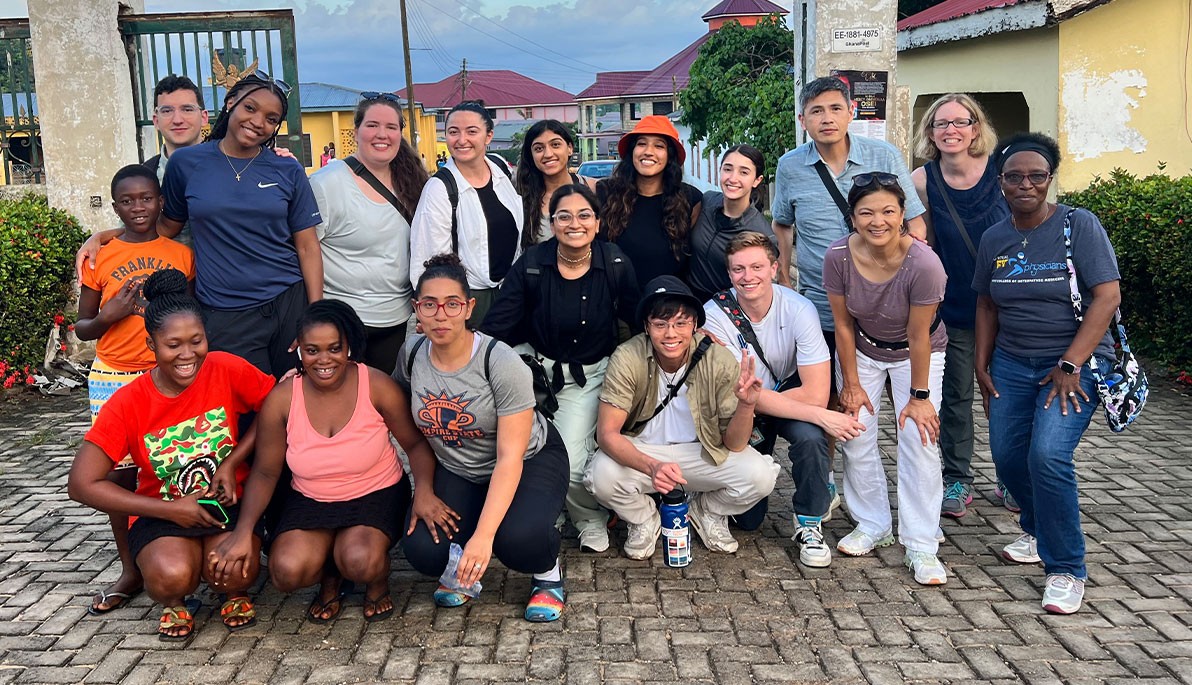
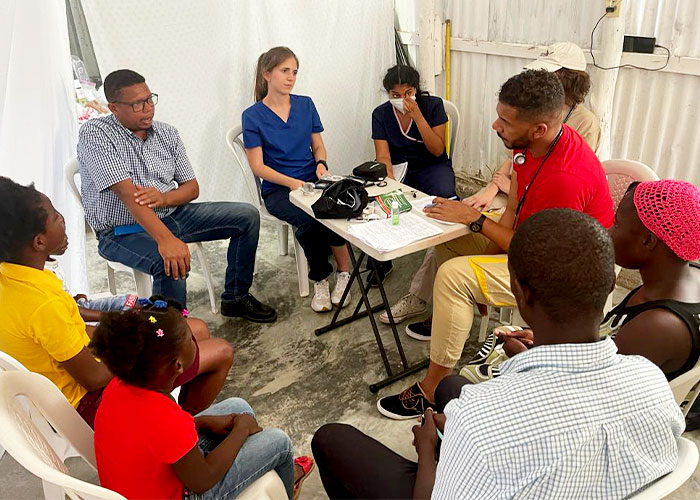
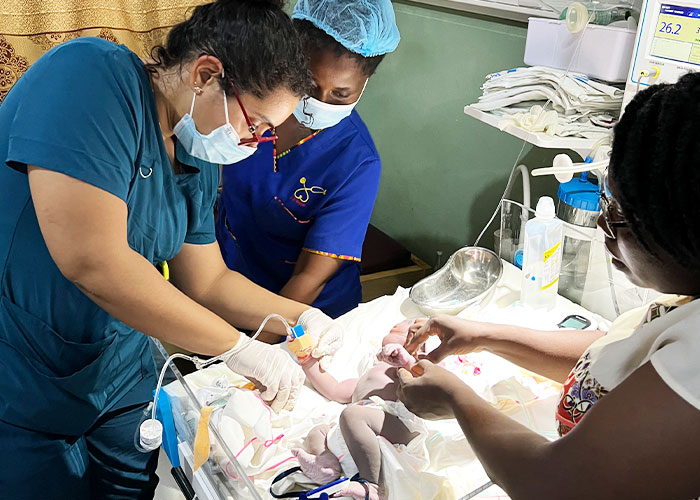
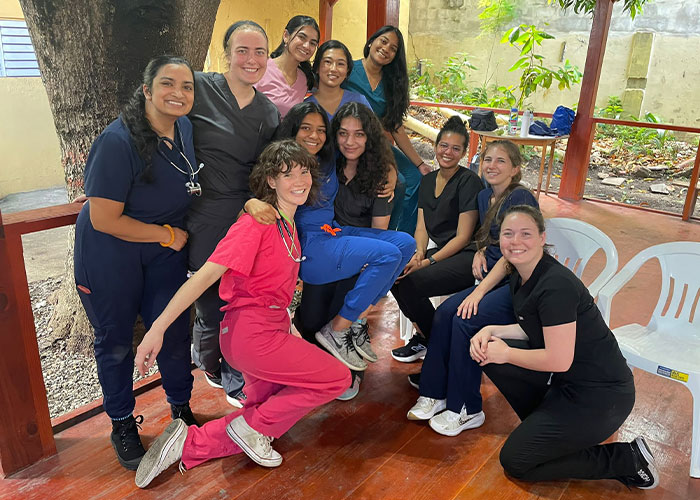
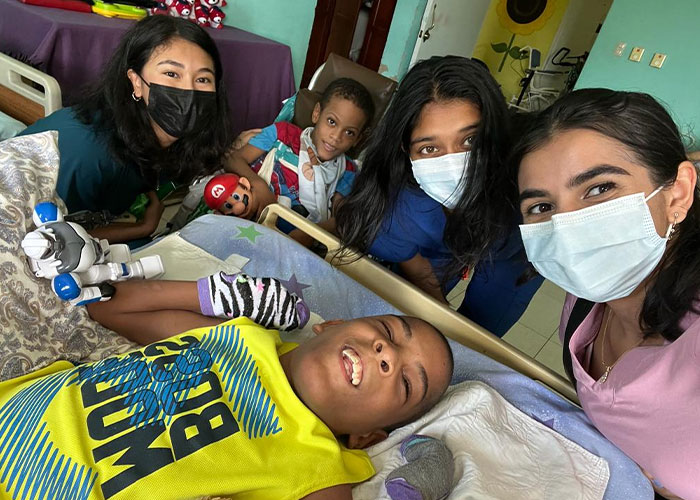
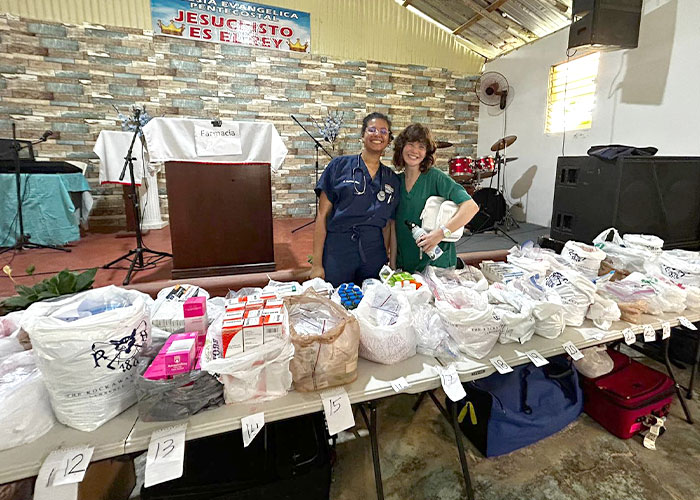
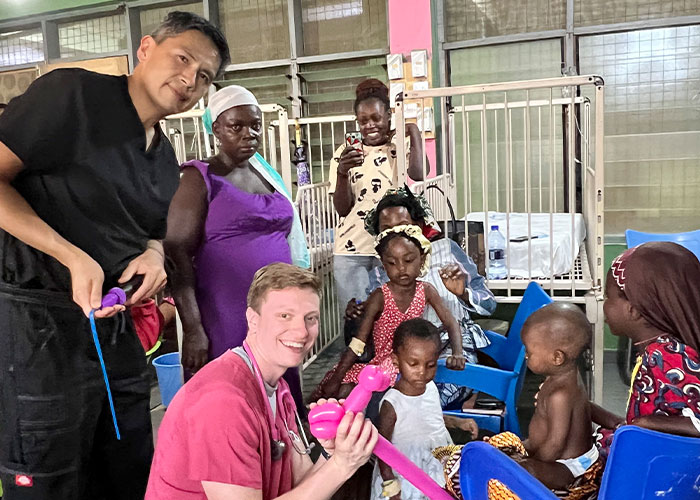
 Open Photo Gallery
Open Photo Gallery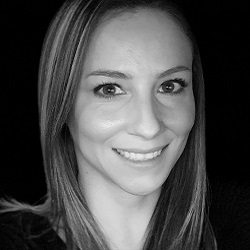
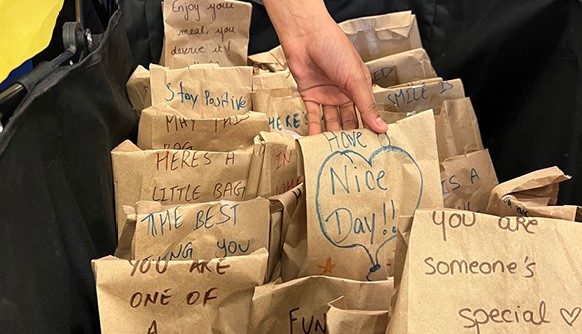
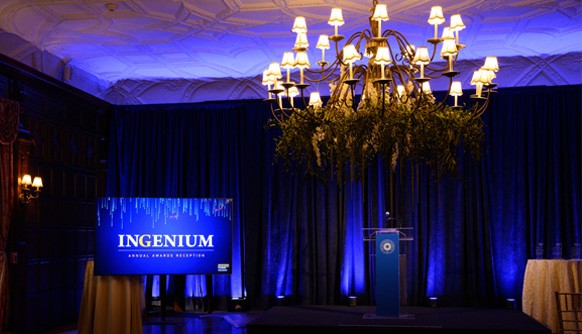
_Thumb.jpg)
